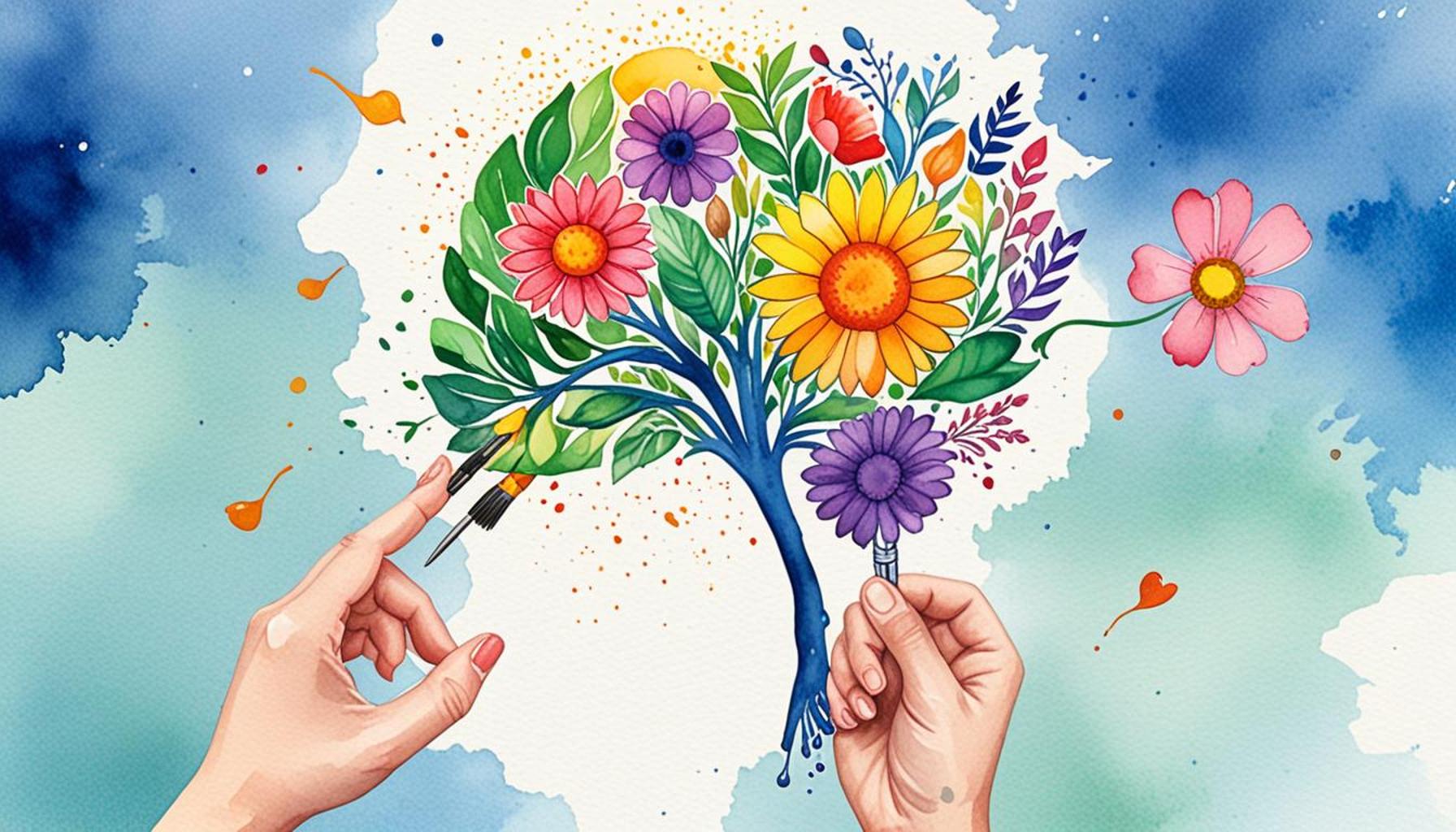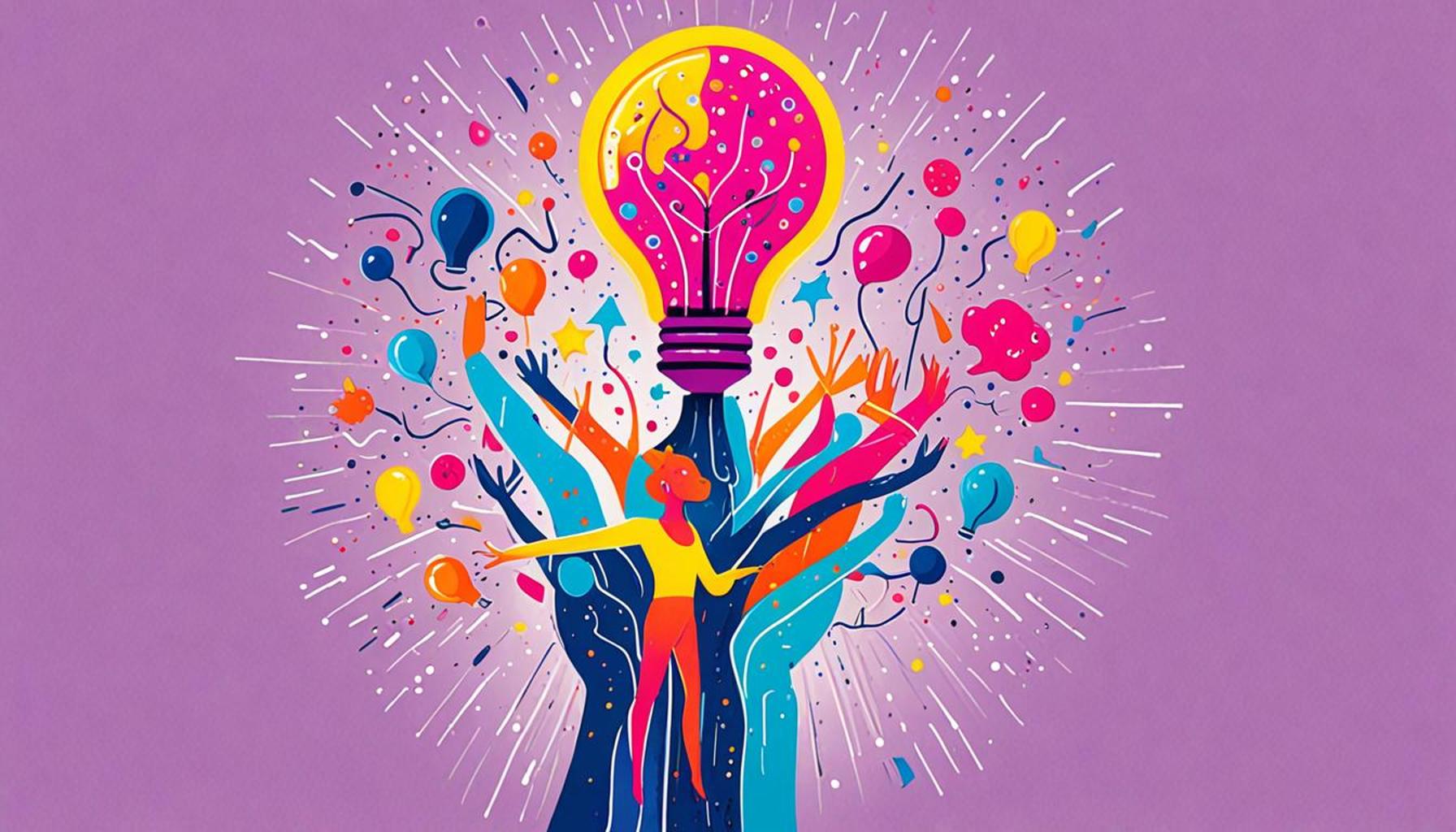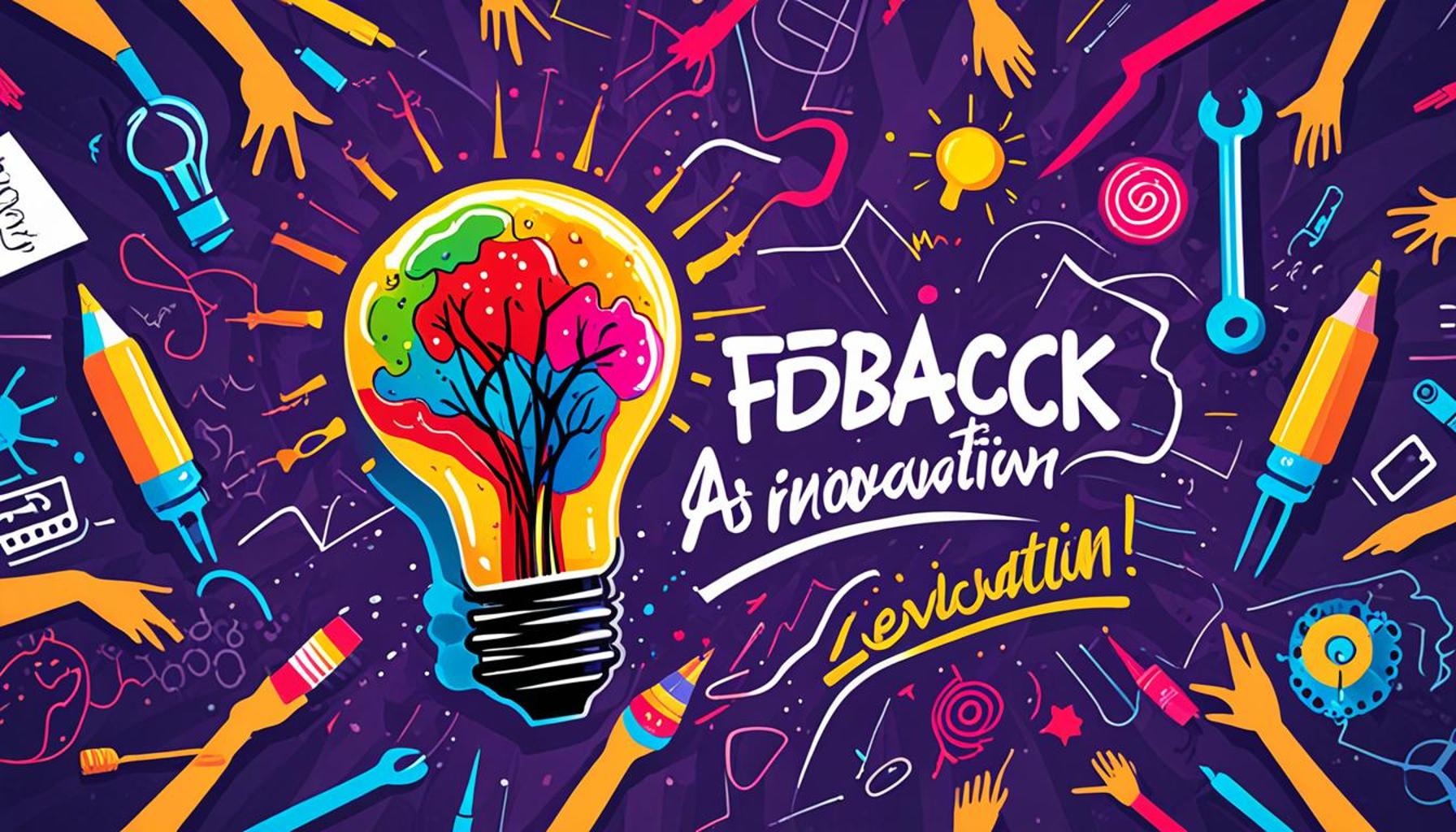Developing Empathy Through Feedback: The Key to a Sustainable Growth Mindset

Understanding the Power of Feedback
Empathy is not just an emotional response; it serves as a powerful tool for personal and professional growth. In Nigeria’s rich and varied cultural milieu, being able to genuinely understand and connect with others is becoming increasingly crucial. This capacity for empathy can act as a catalyst for meaningful interactions and effective feedback, which can lead to transformative experiences in both personal and communal contexts.
Why Focus on Empathy?
Developing empathy through feedback is vital for cultivating a sustainable growth mindset. Here are several compelling reasons why this approach is essential:
- Enhanced Relationships: Empathetic feedback fosters trust and rapport among various social groups—colleagues collaborating on a project, friends navigating disagreements, or family members dealing with personal matters. For instance, in workplaces across Lagos, leaders who practice empathetic communication often see improved morale and cooperation among team members.
- Improved Collaboration: When individuals feel that their perspectives and feelings are acknowledged, they are more inclined to contribute ideas and work cohesively. This is particularly true in Nigeria’s entrepreneurial scene, where startups thrive on teamwork and shared visions. Empathetic feedback encourages openness, allowing innovative ideas to flourish.
- Personal Development: Engaging with feedback in an empathetic manner enhances one’s ability to handle criticism constructively. It cultivates resilience and a willingness to learn from mistakes, essential traits for thriving in fast-paced environments like the bustling markets in Kano or the tech hubs in Abuja.
The integration of empathy into feedback processes not only enriches communication but also fortifies community ties. When individuals actively listen and respond with genuine care, they cultivate an atmosphere that is ripe for learning and personal growth.
The Impact of a Growth Mindset
Embracing a sustainable growth mindset empowers individuals to face challenges head-on and learn from past failures. This perspective holds particular significance in Nigeria’s rapidly evolving landscape, where adaptability and resilience are crucial for both personal and societal advancement.
For example, consider the agricultural sector, where farmers must adapt to changing climatic conditions. Those who embrace challenges and are open to feedback about innovative farming techniques can significantly enhance productivity and sustainability.

As we explore effective strategies for developing empathy through feedback, it becomes evident that this approach is essential for building a resilient, growth-oriented society. The journey begins by recognizing the intricate relationship between empathy and effective communication.
In Nigeria, where diverse cultures intersect, the need for understanding and compassion in communication is more pressing than ever. By fostering empathy in feedback mechanisms, we pave the way for enhanced collaboration, improved relationships, and an environment where both individuals and communities can thrive.
ADDITIONAL INSIGHTS: Expand your understanding here
The Role of Empathy in Effective Feedback
To truly grasp the essence of feedback, one must first recognize the inherent value of empathy. In the context of communication, feedback serves as a mirror reflecting our actions and behaviors, but it’s empathy that adds depth to this exchange. In Nigeria—a nation with a rich tapestry of ethnicities and traditions—empathetic feedback can bridge gaps between diverse perspectives, transforming mere interactions into platforms for growth.
Building An Empathetic Feedback Framework
Creating a framework for empathetic feedback involves several core components that enable individuals to delve deeper into understanding each other’s experiences and emotions. Here are crucial elements that can strengthen this framework:
- Active Listening: The foundation of empathy lies in the ability to listen not just to respond, but to understand. In a setting like a bustling office in Lagos, ensuring each team member feels heard not only validates their feelings but also enhances team cohesion.
- Non-Verbal Communication: Our body language often speaks louder than words. Maintaining eye contact, nodding, and leaning slightly forward can convey attentiveness and understanding, crucial in a society where gestures hold substantial cultural significance.
- Clarification and Reflection: Asking questions or paraphrasing feedback to ensure comprehension demonstrates a commitment to understanding. For instance, if a colleague expresses concerns about a project timeline, reflecting their thoughts may uncover underlying anxieties and foster a supportive dialogue.
- Open-Ended Questions: Employing open-ended questions encourages deeper discussions that can unearth valuable insights. Rather than simply asking if a colleague enjoyed a project, a more open question might be, “What aspects of the project did you find most challenging?” Such queries invite exploration and sharing of experiences.
These elements not only facilitate effective feedback but also nurture a culture of empathy within teams and organizations. In educational institutions across Nigeria, for instance, teachers who engage in empathetic feedback create safe spaces for students, allowing them to voice their concerns and frustrations without fear of judgment. This nurturing approach is instrumental in minimizing the stigma surrounding failure, which is often prevalent in competitive academic settings.
Empathetic Feedback: A Tool for Navigating Cultural Nuances
In a culturally diverse nation like Nigeria, understanding the varying backgrounds and customs of individuals is essential in the feedback process. Empathetic communication acknowledges these nuances and allows for tailored approaches that resonate with different audiences. For example, feedback delivered in a communal context may require a different tone and sensitivity than feedback shared in a corporate board meeting.
Moreover, the impact of empathetic feedback extends beyond individual interactions; it shapes the wider community. By fostering a culture where individuals openly share feedback that is constructive and delivered with care, we create an environment conducive to a sustainable growth mindset. In essence, embracing the empathetic journey transforms the landscape of communication, paving the way for growth on personal and communal levels.
| Advantage | Description |
|---|---|
| Enhances Listening Skills | Fosters a deeper understanding of others’ perspectives, crucial for effective communication and collaboration. |
| Builds Trust | Promotes a safe environment where individuals feel comfortable expressing their thoughts and emotions. |
| Encourages Open Dialogue | Facilitates a culture of feedback, where giving and receiving constructive criticism becomes the norm. |
| Boosts Team Performance | Improves overall efficiency and collaboration as empathy-driven feedback aligns team goals. |
Developing empathy through feedback is more than just a communication tool; it creates a robust framework for a sustainable growth mindset. When individuals are trained to actively listen and respond to feedback, they not only cultivate their own social skills but also contribute to a more inclusive environment. For instance, by enhancing listening skills, team members can better understand the subtle nuances of their colleagues’ expressions, which can help in anticipating needs and concerns.Furthermore, building trust through empathetic feedback lays the groundwork for open dialogue. This environment allows constructive criticism to flow more freely, encouraging creative problem-solving and collaboration. The ripple effect of this approach also leads to improved team performance, as each member feels aligned with common objectives, motivating them toward shared goals and mutual success. As organizations embrace these principles, they set a foundation for continuous growth and improvement, making empathy an indispensable component of their corporate culture.
SEE ALSO: Click here to read another article
Fostering a Growth Mindset Through Empathetic Feedback
The journey towards a sustainable growth mindset is intertwined with the art of giving and receiving feedback. In Nigeria, where the value of community and collective progress is paramount, empathetic feedback fosters personal and professional development. The aim is not merely to assess performance but to cultivate a shared understanding that propels individuals and teams forward.
Empathetic Feedback as a Catalyst for Growth
As individuals engage in empathetic feedback, they unlock a transformative process that encourages resilience and adaptability. Rather than perceiving feedback as criticism or a personal attack, it is embraced as an opportunity for learning. This shift in perception can be particularly impactful in Nigerian workplaces, where the fear of failure can often prevent innovation. Recognizing mistakes as part of the growth journey empowers employees to take risks and explore creative solutions without the weight of judgment hanging over them.
- Celebrating Learning Moments: When leaders and peers acknowledge mistakes as learning opportunities, it creates a safe environment where individuals feel supported. For instance, during team debriefs after a project, focusing on what went well alongside constructive critiques reinforces a culture of continuous improvement.
- Mutual Accountability: In a culture deeply rooted in communal values, feedback becomes a shared responsibility. By involving team members in the feedback process, individuals are more likely to engage with their own development goals. For example, peer reviews within team settings in Nigerian organizations encourage members to hold each other accountable, fostering a sense of belonging and commitment.
- Genuine Gratitude: Expressing appreciation for constructive feedback creates a positive feedback loop. Recognizing the effort someone has made to deliver thoughtful feedback elevates their input, transforming it into a valuable contribution to the team’s growth. This practice is often observed among close-knit teams within local startups.
The Role of Empathy in Leadership Development
In the Nigerian context, empathy plays a pivotal role in shaping effective leadership. Leaders who practice empathetic feedback not only enhance their decision-making capabilities but also inspire loyalty and productivity within their teams. A recent study showcased that organizations led by empathic leaders see a marked increase in employee engagement and satisfaction. When leaders make feedback a cornerstone of their leadership style, they cultivate an atmosphere of trust and psychological safety.
Consider the impact of empathetic feedback in educational settings. Teachers who provide constructive, empathetic feedback foster resilience in their students. This approach encourages learners to view challenges as opportunities for growth, rather than insurmountable obstacles. The ripple effect extends beyond the classroom and nurtures individuals who can tackle future challenges—an essential characteristic for Nigeria’s youth, as they prepare to navigate a rapidly changing economic landscape.
Measuring the Impact of Empathetic Feedback
As organizations and institutions across Nigeria start to adopt empathetic feedback as a core practice, measuring its impact becomes crucial. Metrics such as employee satisfaction surveys, retention rates, and overall team performance can provide data-driven insights into how empathy in feedback fosters a growth mindset. Evaluating outcomes over time helps refine feedback frameworks and reinforces a commitment to mutual understanding and growth.
Incorporating feedback mechanisms that prioritize empathy not only enhances individual performance but also contributes to the resilience of teams and organizations as a whole. The commitment to a sustainable growth mindset rooted in empathy will ultimately empower Nigeria’s workforce to adapt, innovate, and thrive in an ever-evolving global marketplace.
LEARN MORE: This related article may interest you
Conclusion: Embracing Empathy for Lasting Growth
The path to a sustainable growth mindset in Nigeria is increasingly defined by the embrace of empathetic feedback. As organizations recognize that constructive criticism, delivered with kindness and understanding, can be a powerful tool for development, they pave the way for a culture where employees are empowered to experiment, learn, and flourish. Empathy transforms feedback from a potentially daunting experience into a collaborative journey of growth.
By celebrating learning moments, promoting mutual accountability, and fostering an environment of genuine gratitude, organizations can cultivate a workspace where innovation thrives. This holistic approach emphasizes that feedback is not merely a reflection of performance but rather a fundamental aspect of personal and professional growth that benefits the wider community.
Furthermore, leaders who prioritize empathetic feedback not only reinforce trust within their teams but also create a ripple effect that enhances overall engagement and productivity. As Nigerian workplaces harness the power of empathy, they not only unlock the potential of their workforce but also contribute positively to the nation’s economic landscape, preparing individuals to navigate challenges with resilience and creativity.
In summary, embracing empathy in feedback mechanisms is not just a strategy; it is a commitment to fostering an adaptable, innovative, and robust workforce ready to tackle the complexities of a rapidly changing world. By investing in this practice, Nigeria can emerge as a leader in sustainable growth, driven by a collaborative spirit and a shared vision of progress.


